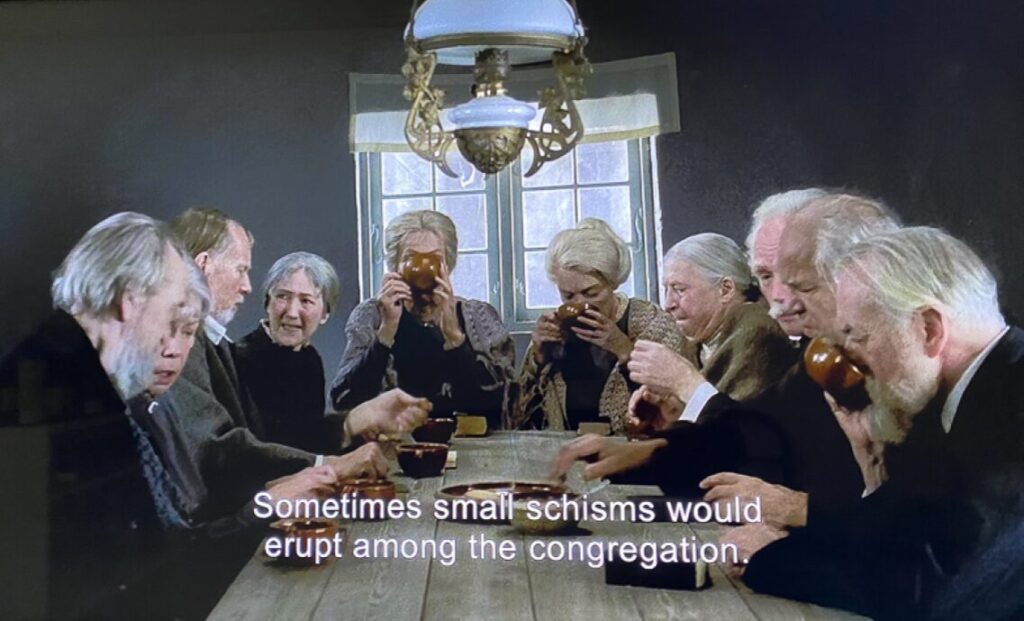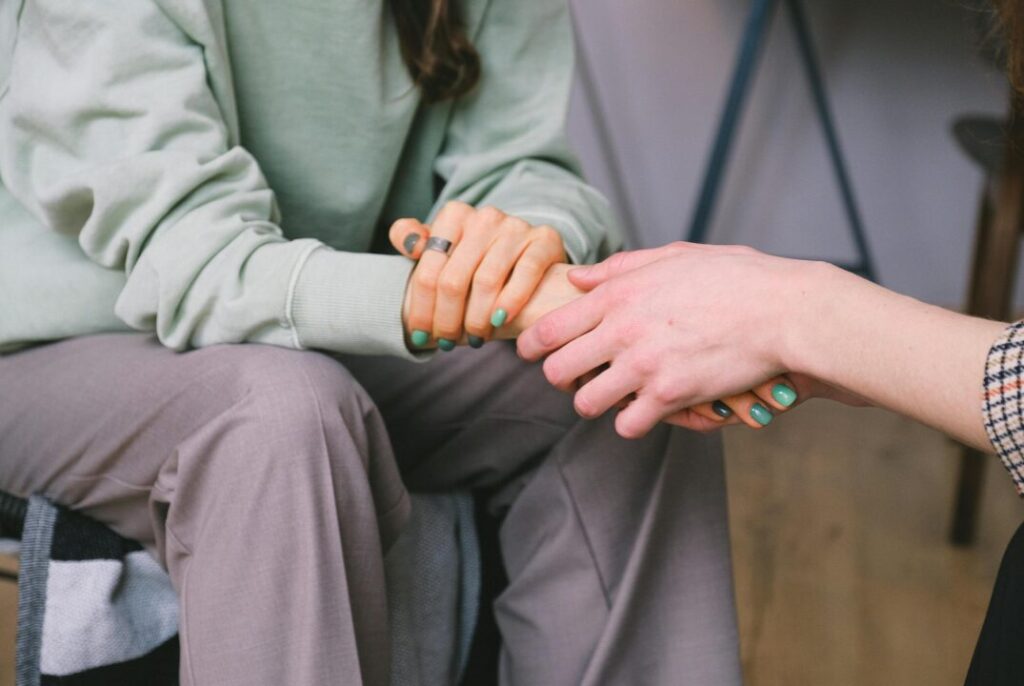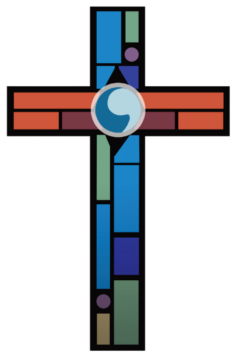As I was thinking about our theme for today, which is, cultivating a life of self-giving, I was reminded of a film I saw in seminary called Bette’s Feast.
This comes from the eighties. It is a French film about a village in Denmark, a small village that was started by a pastor. He was very much about a life of piety and he taught them to live with the most modest means.

This is the village people that are left at this point in the story. They always dress in black. There is no color in the village. They have gruel, or oatmeal would be a nicer way to put it, for most meals and maybe a piece of bread. They’re very careful about living a life of poverty. They do not allow themselves any luxuries. At this point in time, the pastor has died. His two daughters, who are sitting at the far end by the windows, have continued on his legacy.
They get together and sing for their worship, but there is quite a bit of disagreement within the village. They’re just getting to be grumpy old people. They don’t have anything that brings them joy or happiness.
And a stranger comes a stranger named Bette Babe. This is set in the 18th century. Bette is a refugee coming from Paris, fleeing the war. She’s sent to the sisters by someone who had been courting one of the sisters years back, and she’s there to be their housekeeper. They say, well, we can’t pay you, but we can offer you room and board. What she does in her time with them, she slowly starts cooking for them and adding spice to their food.
As the story goes, she also has a lottery ticket from Paris and at this point she wins 10,000 francs in the Paris Lottery. With her winnings, she decides to throw them a French banquet. She spends all of her money on one dinner to celebrate the pastor’s 100th birthday. There’s quite a difference from this scene with their very modest bowls and their simple tablecloth to the beautiful China and they have a glass for each different kind of wine. All of the candelabras and dishes, it’s quite a change.
What happens after they have this meal, it was like the joy within them started to awaken and they remembered the pleasures of life. Not that they would be that way always, or have those things always. But that life that God gives is a good life. That all came about because of Bette’s willingness to give of herself, to give of everything that she had, knowing that it was okay. She was okay giving a meal, just one meal with everything that she had.
We are at the this point in the Holy Week story where Jesus is also about to give all that he has.
Jesus is coming into Jerusalem. Jesus is on the donkey and his followers are putting cloaks down, and palm branches are coming in on one side of Jerusalem. On the other side of Jerusalem is Pilate and the military.
What we have is like a poor people’s protest and a military parade. The question is, which parade will you attend? Where will you go? Jesus said “No one has greater love than this to lay down one’s life for one’s friends” – John 15:13. But when people are willing to serve our country’s military, we celebrate them because they are willing to give their life to defend our freedom. We are grateful because not all of us can do that. But how willing are we really to lay down our life for a friend?
I know of parents who will lay down their life for their children. Partners who will lay down their life for a spouse. Those will give up everything to see that one survive and thrive. But a friend, would you do it for a friend? Would you do it for someone you don’t even know? That’s what this week is about.
There’s this scripture when Jesus got to Jerusalem, he wept and said, “If you, yes you, had only known on this day the things that would bring peace to you“- Luke 19:42.
What are those things that make for peace? Well, I think one of those things is gratitude, recognizing that who we are and what we have is not because of our efforts. We are who we are today and have what we have today because of who our families were, who our friends are, the teachers that we’ve had, our life struggles, and the gifts that God has blessed us with.
Because we have all that we need to be the people God intended us to be. The question is, do we live it? Is that who we are in life? Do we recognize all of that and do we use our gifts that we have for the benefit of others?
I think the other part of it is that we have to recognize that the needs of others may be more important than our needs. We have to put the needs of the many over the needs of the one, and that’s a hard thing. Our self-interest, our egos, everything in us wants to preserve us, and we have to fight against that to say, no, the whole is more important than me.
That’s what Jesus does. That’s who Martin Luther King was. That’s who Bonhoeffer was. That’s who Oscar Romero was. They said that their lives were not as important as the rest of us.
Let me go to a lighter place. I watched Moana 2 yesterday.
Her story is that she’s willing to go where no one else has gone and risk herself for her community. That’s the storyline. I’m not giving anything away. It’s worth watching.
I want you to pray for Jonathan Paredes this week. Jonathan, Lucy and the boys, because Jonathan got a call to go back to El Salvador. He has been going back every holy week for quite a few years to a camp where he has helped to run. He told them last year that that was his last year because he’s in his first pastorate and holy week is kind of a big week to not be there. But, he got the church’s permission to go. They called him and they usually have like three or four thousand kids at this camp that he goes to, and this year they have 10,000 kids going to this camp. They asked him, can you please come back? The whole family’s getting on a plane this afternoon to go to El Salvador.
That is not the problem. The problem is will he get back? He has a passport. They all have passports, but will he get back? That remains to be seen. He’s coming back on Easter, so we’re going to pray that everything works. But I’m nervous and I’ll name that he’s nervous too, but he’s going because it’s the right thing to do.
I think life can be frightening and overwhelming. Right now, we don’t have all the same resources, we don’t have all the same gifts, but we come to this table and to this space with the gifts that we have. By sharing our gifts, everybody has what they need. That’s the beloved community of Christ.

So the question is, can you give yourself away in this moment? Do you have compassion, the gift of being present? The gift of your attention, your empathy, that you can share with someone who’s struggling right now, and are you seeing them? Do you see them in our community, at the grocery store you shop at, or the places that you travel to?
Who needs someone that’s near you that you can just give them a bit of your time? Because it matters what we do right now.
I’ve been ending every sermon in Lent with this. It matters what we do because we are teaching our children how to survive in these difficult times. I’ve been reading this piece by Steven Sondheim.

“Careful the things you say. Children will listen. Careful the things you do. Children will see. Children may not obey, but children will listen. Children will look to you for which way to turn, to learn, what to be. Careful before you say, listen to me.”



